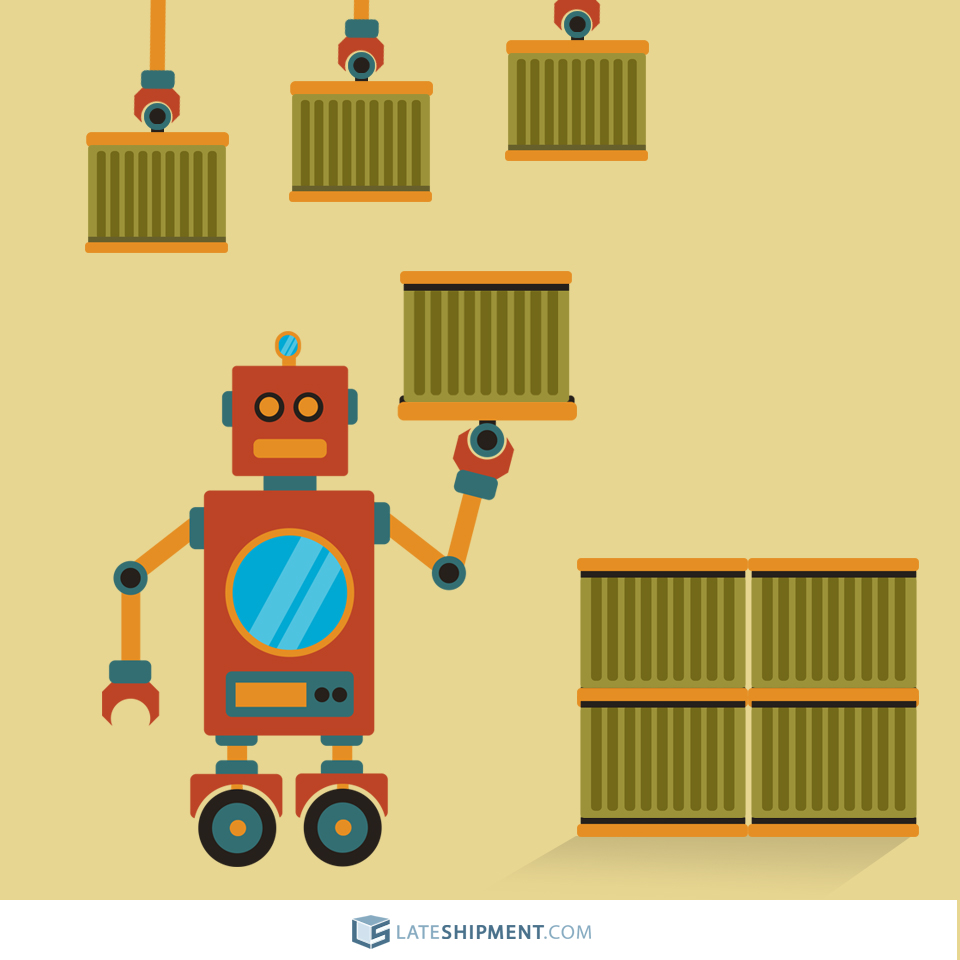Plaguing issues that worry logistics companies are diminishing margins, fuel wastage, idle time, turnaround time and speed of deliveries in the supply chain. And Artificial Intelligence can help with these problems. And that is why logistics companies are looking at AI for a fundamental transformation to handle movement of goods. AI is used in tandem with other technologies like Robotics & Automation, 3D Printing, Big Data for best results.
Tech giants like Apple, Amazon, Facebook, Google invest a lot of time and money on AI that can be used with real world issues. And one of those is to do with supply chain management of how goods are sent from one point to another. The future of AI in logistics is about driverless cars and deliveries. Drone deliveries are being tested as we read this. Uber has been continually testing its potential with deliveries. The Internet of Things or IoT, the most happening study subject of AI, is most likely to assume to major part of logistics in the future. It offers the possibility to interface just about anything to the Internet and can enable information driven co-ordinations.
We are looking at augmented AI with machine-human interaction and collaboration. Augmented reality offers the “smart glasses”, especially in order picking. These are smart glasses that enable intelligent, hands-free operations. Robots can replace human intervention in warehouses. They are lighter, more flexible, easier to program, and more affordable. As of now, several cutting edge technology majors are using “collaborative robots” that work side-by-side with human employees. These robots are of great help in supporting repetitive and physically demanding tasks in logistics.
Self-driving vehicles have made great inroads in logistics. We also have autonomous forklifts and other self-piloted equipment that greatly optimize warehouse operations. Very soon, we are looking at a future where self-driving vehicles in logistics will be to overcome regulatory and security challenges to deploy autonomous vehicles on public roads.
Amazon made news with its drone delivery service recently. Drones are unmanned aerial vehicles (UAVs) that can do last mile deliveries to end customers. Though it looks like a great prospect, drones will still require a bit more time before mainstream adoption as of now. But research in the arena looks promising. Drone deliveries could avoid traffic delays that occur on road.
3D Printing is another area that is being studied. There are several products that can, instead of being manufactured in large mass-production facilities and shipped around the globe, be sent to warehouses as product designs. These designs can be digitized and transmitted to small factories closer to the customers. And these smaller factories could manufacture with the help of 3D printing technologies.
Related topics:
How analytics can transform supply chain management
5 last mile delivery challenges to overcome in e-commerce
How can your online store leverage data analytics for a better customer experience
5 simple ways in which your shipping data can help your business offer exceptional customer support








